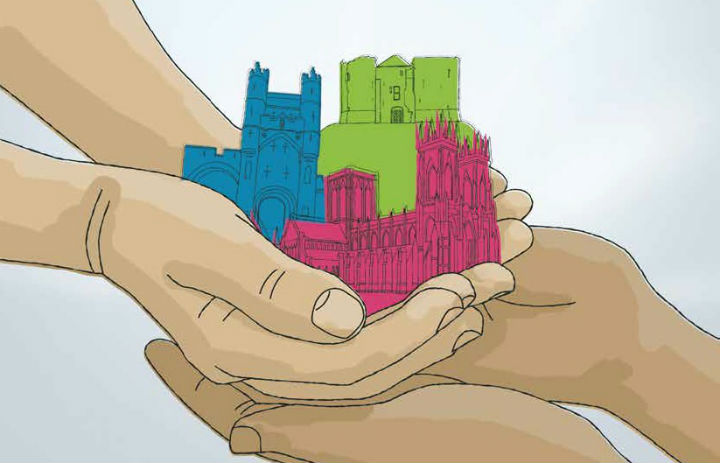Centre for Applied Human Rights celebrates ten years
Posted on Tuesday 23 January 2018

The Centre is celebrating 10 years with a number of public events
The Centre’s Director, Professor Paul Gready, discusses the 10th anniversary and why recognising this work is so important for the future of global human rights:
“Many of the staff who have worked at the Centre for Applied Human Rights over the past 10 years were attracted by the probably once-in-a-lifetime opportunity to create something new, from scratch.
“While many other human rights centres exist in the UK and beyond, we had something different to work with – a Protective Fellowship Scheme for Human Rights Defenders at risk.
“The first Fellows arrived in the spring of 2008, two women from Afghanistan and Zimbabwe. Since 2008 we have covered the A to Z of the globe. Our Fellowship Scheme is one of the largest in Europe, hosting up to 10 Fellows a year, and is also one of the few that is open to anyone working on any human rights issue from anywhere.
No tool kit
“When we started out there was no template to follow and no tool kit for reassurance. Universities hosted academics at risk; NGOs usually supported frontline activists. We broke the mould.
“Staff at the Centre have adapted and refined what we offer, relentlessly seeking improvements. Our scheme is now regularly consulted by others interested in setting up similar programmes.
“From this seed a Centre of diverse interests and expertise has grown and gathered momentum. For example, in 2016 we launched the Human Rights Defender Hub which integrates the Fellowship Scheme and our research and training with Human Rights Defenders. The Open Society Foundations supports this initiative, recognising the Centre as a ‘thought leader’ on the issue of protection.
Global challenges
“In 2016 we also secured three of the University’s first research grants under a new interdisciplinary Global Challenges Research Fund, on issues as diverse as the law of asylum, development alternatives and legal empowerment.
“The Centre played a leadership role in a five-year campaign which led to York declaring itself the UK’s first Human Rights City in April 2017, a declaration which had cross-party support in the city and widespread backing from within civil society.
“We live in challenging times. A perfect storm of austerity, rising inequality, populism and nativism, and security concerns have rendered physical, administrative, legal and financial attacks on civil society the ‘new normal’ in many parts of the world.
High demand
“What our Centre offers has never been in higher demand, or more needed. As part of a University, we bring distinctive assets to efforts to create a different kind of world, including a space that is often more protected than NGO spaces and an ability to facilitate networks and collaborations across disciplines, sectors and countries.
“Our Centre is a reminder of the role universities need to play in the public sphere, as values-based institutions which can help to set rather than simply follow prevailing political agendas.”
The Centre is celebrating its 10th anniversary with a number of public events, including a multi-media exhibition told in the voices of human rights activists. For more information visit: https://www.york.ac.uk/cahr/news/events/2018/artactivismanexhibition/
